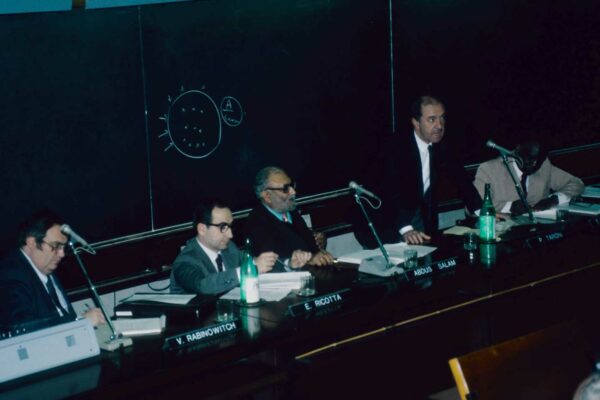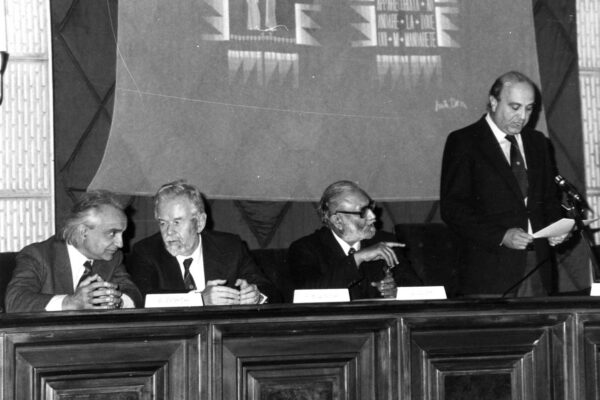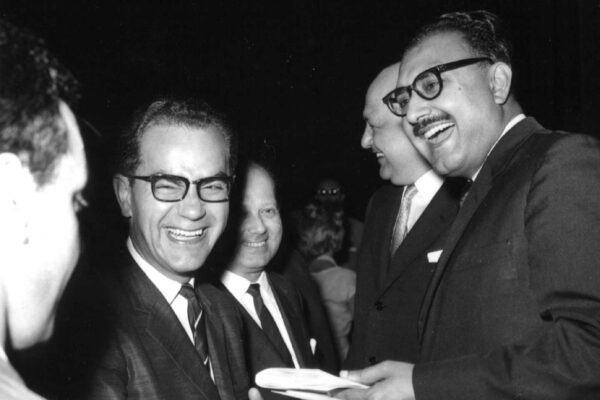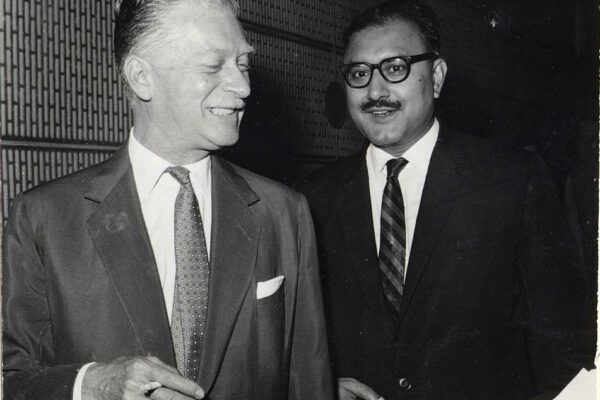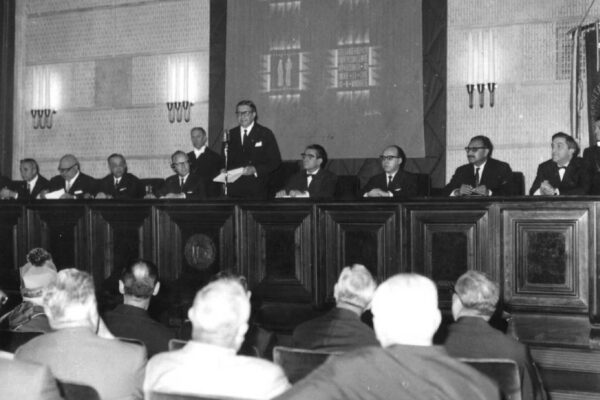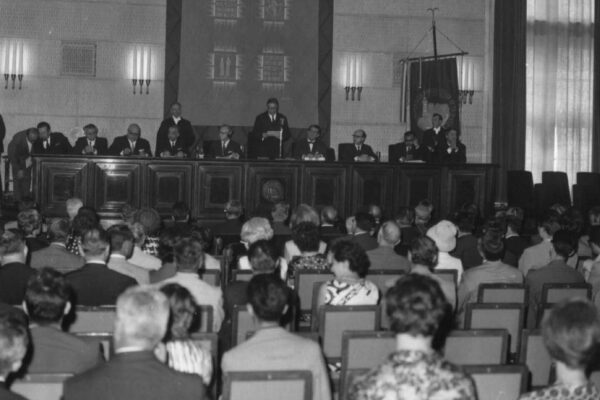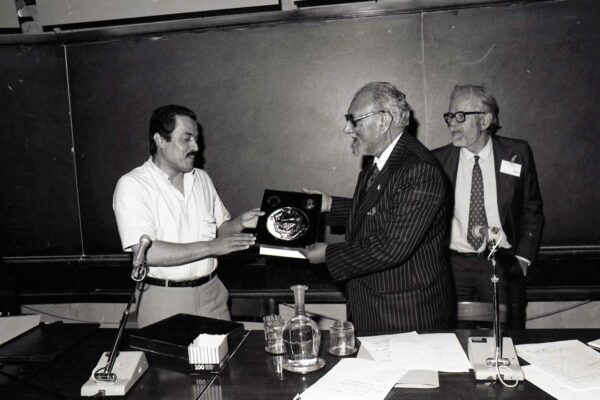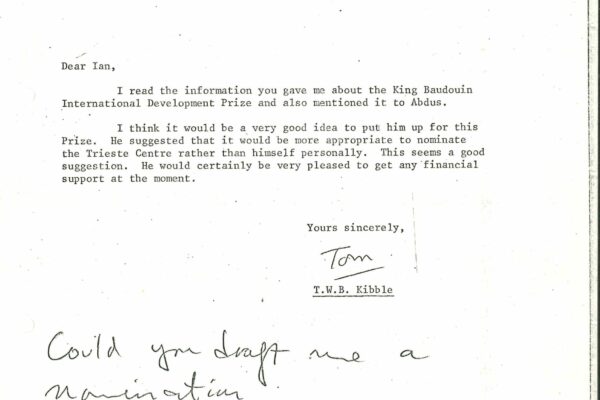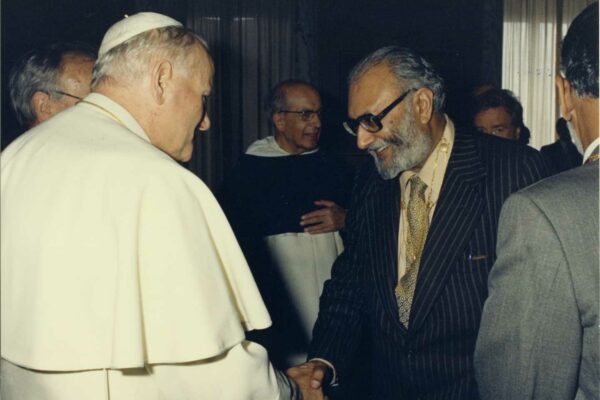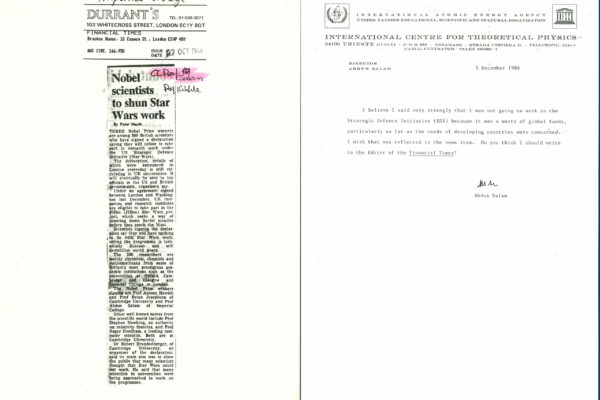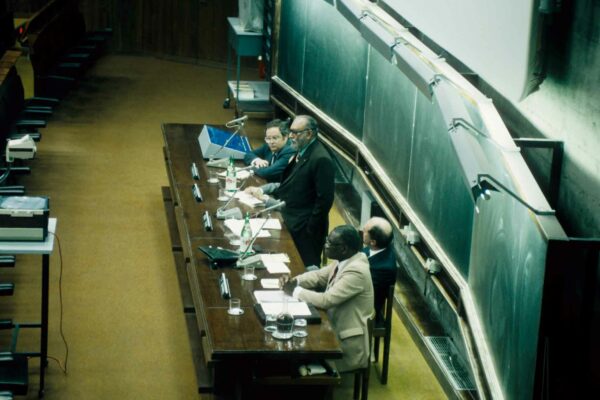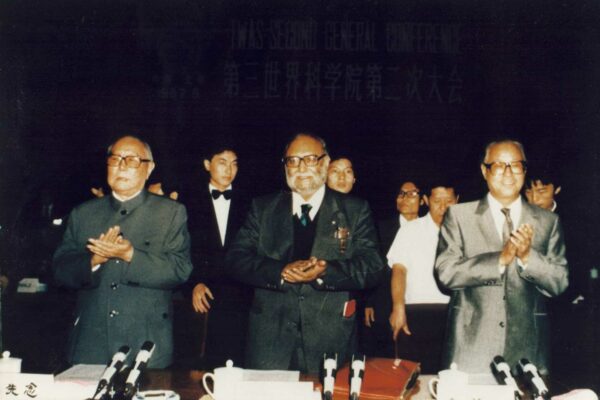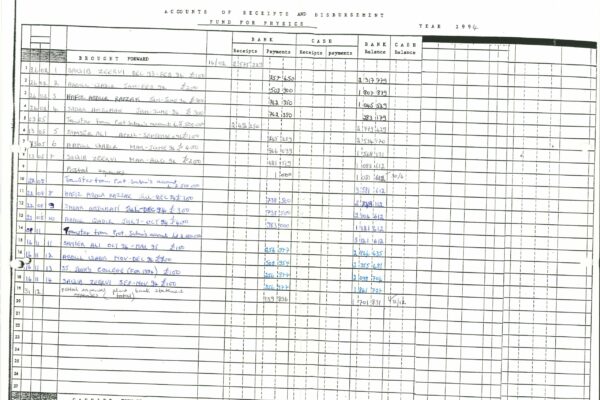The International Centre for Theoretical Physics
Salam founded the International Centre for Theoretical Physics (ICTP) in 1964 in Trieste, Italy, and became its first Director. The goal of the ICTP was to combat the issues of isolation and lack of resources that scientists in the Global South often faced, inspired by Salam’s own experiences in Pakistan.
“When in Pakistan I was the only theoretical physicist in the country. The nearest colleague was in Bombay… You have no idea of what that can be like. A theoretical physicist has got to be able to talk, to discuss, to shout if needed.”
– Abdus Salam
To this day, the ICTP hosts around 6000 scientists in its facilities every year. Its activities do not just cover theoretical physics, but also the broad spectrum of physical sciences. 50% of its visitors are from developing countries.
”The creation of Physics is the shared heritage of all mankind. East and West, North and South have equally participated in it.
Abdus Salam
Founding the ICTP
On top of his role at Imperial, Salam was the Pakistani delegate for the International Atomic Energy Agency (IAEA) – a position he used to present the idea of an international theoretical physics institute under the organisation of the United Nations.
He inquired the help of scientific titans on both sides of the Atlantic to help garner support for the project. J. Robert Oppenheimer even wrote to the Chairman of the US Atomic Energy Commission to give his blessing to the ICTP’s establishment. Salam worked closely with Italian and local Trieste authorities to house and fund the Centre.

The inauguration ceremony of the International Centre for Theoretical Physics, held at the University of Trieste on 18 June 1964. Agostino Origone, the rector of the University from 1958 to 1972, is speaking.
The Cold War had put a stop to many East-West collaborations, and the ICTP was one of the only places in which scientists from both sides of the Iron Curtain could share ideas and collaborate.
Third World scientists
Under Salam’s direction, one focused goal the ICTP had was to provide access to resources and an innovative environment for theoretical physicists from the developing world. Salam believed that theoretical physics, requiring no expensive facilities or laboratories, were the perfect discipline for the developing world to specialise in.
“Physics is the Rolls-Royce of sciences. The developing countries need bullock carts.”
– A senior delegate at the United Nations to Salam
The ICTP had an innovative associateship scheme to prevent the brain drain of scientists from their home countries. As associates, scientists could get funded stays at the ICTP, but were expected to play an active role in building up their domestic scientific and educational infrastructures for the rest of the year.
Since the programme began in 1964, the ICTP has supported more than 3000 Associates.

The ICTP has established formal collaborations with Affiliated Centres and has also set up regional centres of excellence across the world in China, Rwanda, Brazil and Mexico. Collaborations may focus on research, training or a combination of both. Partnered universities are encouraged to make use of as many ICTP programmes as possible. Meanwhile, the centres of excellence brings high-quality physics and mathematics education and science meetings closer to local scientists.
Acquiring adequate funding for the ICTP’s operations were constant concern and source of vexation for Salam. He often funnelled money from awards that he had towards funding scientists in the Global South. All of his Nobel Prize money went towards setting up the Muhammad Hussain Hajira Hussain Abdus Salam Nobel Talent Fund, which assisted academically excellent young students to further their education in India and Pakistan. The fund is named after Salam’s parents.
Salam’s advocacy work did not stop with the establishment of the ICTP. He was active in support the founding of other similar networks and organisations that supported scientists from Latin America, Asia and Africa.
View our Exhibition Collection
Explore archival documents and photos, provided by the International Centre for Theoretical Physics.
![Telegram - waterlogging A telegram from the Office of the High Commissioner for Pakistan in the United Kingdom, addressed from the Cypher Bureau. The telegram is addressed from: Parep, Washington to Pahic, London. It reads: "Ambassador from Zulfiqar Ali Bhutto. In continuation President's message No.690 dated May 10th for Doctor Abdus Salam concerning Wiesner's recommendations on [waterloging] inform his team headed by Said Hasan and consisting of Zuberi and Ghulum Ishaque due in Washington end of May for discussions with World Bank on Indus Treaty. Excellent opportunity for them to discuss [waterloging] issue as well because most of them are directly concerned with [waterloging] problem also." It's distributed amongst three people: 1. His Excellence, 2. Deputy High Commissioner, 3. PATLO (Dr. Abdus Salam).](https://salamexhibition.uk/wp-content/uploads/sites/12/2024/01/A0038-01_Page_1-scaled-600x400.jpg)
